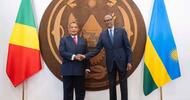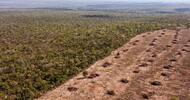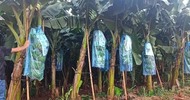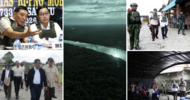Euclides de Carli, dono de 13 empresas ligadas à venda e arrendamento de terras, oculta seu posto entre os maiores grileiros do país atrás da imagem de empresário filantropo
- El País Brasil
-
02 September 2018
Portrait of a Brazilian businessman accused of violent land grabbing whose clients include Cargill, Bunge and the Teachers Insurance and Annuity Association of America (TIAA).
- Brasil Reporter
-
02 September 2018
Control of land for crops that sustain the world’s largest food businesses, such as Ferrero and Nestle, is the driving force behind the destruction of land affecting both environment and people worldwide.
- Globe Post
-
24 August 2018
O Relatório, que será apresentado pelo assessor sênior da Fian Internacional, Flávio Valente, descreve e analisa os impactos ambientais e sobre os direitos humanos causados pela expansão do agronegócio e pela especulação de terras na região Norte/Nordeste do Brasil, conhecida como Matopiba, que engloba áreas dos estados do Maranhão, Tocantins, Piauí e Bahia.
Webdocumentário | Como os camponeses do Norte de Moçambique têm resistido à chegada das grandes empresas de agricultura
- Divergente
-
06 August 2018
Global Witness annual figures show at least 207 land and environmental activists were killed in 2017 across 22 countries, almost 4 a week, making it the worst year on record.
- Global Witness
-
24 July 2018
“In the long term, South America, and the Black Sea area still have great potential in their arable land, and can play a bigger role in the global soybean supply system,” says the president of state grains trader COFCO.
Un nuevo informe revela cómo algunos fondos de pensiones, inversiones e instituciones internacionales están destruyendo el futuro de las comunidades rurales del noreste de Brasil.
Brazilian agribusiness corporations have created partnerships with pension funds in the United States, Canada, and Europe for the “outsourcing” of land operations that are analogous to the international outsourcing of labor.
- LatAm Perspectives
-
28 June 2018
Study's results in the Amazon “clearly” reinforce “the notion that oil palm plantations can be extremely hostile to native tropical forest biodiversity, as has been shown in more traditional oil palm countries in South-East Asia, such as Malaysia and Indonesia.”
"
Reafirmamos que investimentos como o ProSavana, programa de desenvolvimento do corredor logístico de Nacala e o programa Sustenta não são e jamais serão alternativas de desenvolvimento agrário que se ajustam às necessidades dos moçambicanos e moçambicanas".
The peasant men and women who are members of the No to ProSavana Campaign maintain our opposition to this program and the way it has been imposed on us
- No to ProSavana
-
06 June 2018














